How Does Hotel and Travel Data Scraping Improve Pricing Decisions With 50% More Insights?
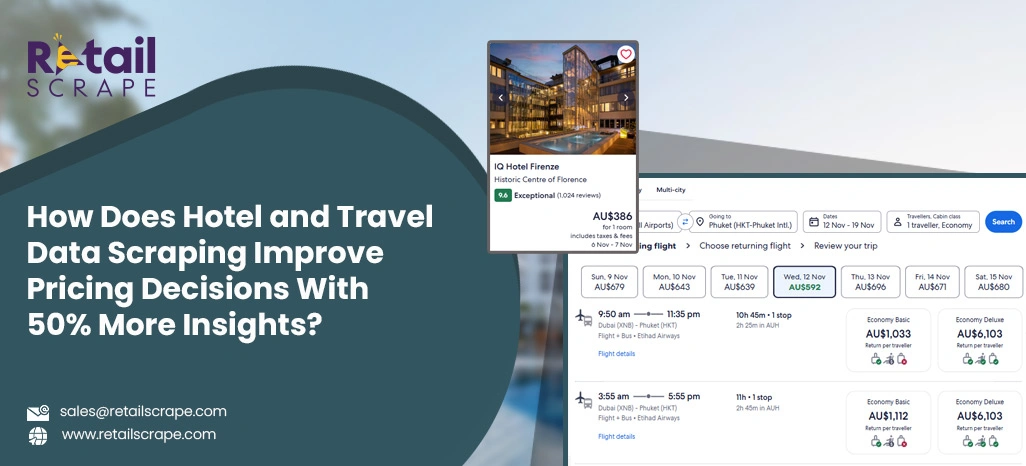
Introduction
The hospitality and tourism industry relies heavily on data-driven strategies to stay profitable in an evolving market. With increasing demand fluctuations, competition, and seasonal patterns, businesses must respond swiftly to ensure the right prices at the right time. Hotel and Travel Data Scraping plays a crucial role in enabling such smart pricing approaches, offering access to extensive data from multiple online sources including booking platforms, competitor listings, and customer reviews.
Through effective Travel Pricing Intelligence, travel companies can identify trends in customer booking behaviors, understand competitors’ rate changes, and make evidence-based pricing decisions. The ability to collect and analyze massive amounts of data in real time ensures better forecasting and higher revenue per available room (RevPAR). With more than 50% additional insights from data-driven models, travel brands are transforming how pricing works across markets, improving conversion rates while enhancing guest satisfaction.
Evaluating the Impact of Advanced Pricing Models
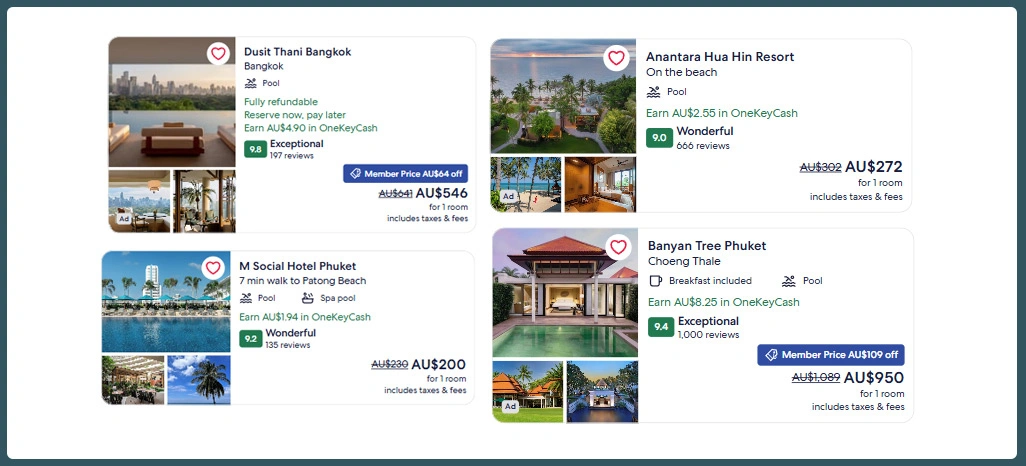
In today’s hospitality and tourism landscape, businesses no longer rely on instinct or outdated pricing systems. Instead, analytical models now dictate how hotels and travel platforms optimize their pricing structures. The adoption of Travel and Hotel Data Dynamic Pricing Strategies has transformed the approach toward profitability, helping companies design flexible models that adjust rates based on changing demand and competition.
Dynamic models process real-time factors such as occupancy rates, booking trends, and regional market behavior to establish the best possible rates. A study from Deloitte reveals that companies using automated data-driven pricing witnessed an average of 20–25% improvement in revenue optimization within the first operational year. Such structured systems minimize revenue leakage and maximize conversion potential.
Furthermore, integrating technology allows pricing analysts to simulate multiple market scenarios, forecast demand surges, and implement timely updates. This ensures that hotels maintain competitive yet profitable pricing throughout varying business cycles. Decision-makers can now base strategies on predictive intelligence rather than assumptions, improving the accuracy of their financial forecasting while maintaining flexibility in changing market conditions.
| Metric | Impact Area | Average Growth |
|---|---|---|
| Dynamic rate adjustment | Occupancy and bookings | +18% |
| Predictive analytics | Forecast precision | +22% |
| Seasonal rate optimization | Revenue yield | +16% |
| Competitive pricing decisions | Conversion rates | +20% |
This data-driven model goes beyond price setting — it focuses on optimizing business strategies through analytical precision. In the travel industry, Tourism Market Data Analytics plays a key role, transforming pricing into a smart, ongoing process aligned with broader goals to ensure lasting profitability and customer confidence.
Advancing Market Competitiveness Through Instantaneous Rate Tracking
The hospitality industry thrives on competitiveness, and precision in pricing remains its core strength. Constantly changing market dynamics demand that pricing managers adapt rapidly. The integration of Real-Time Hotel Price Monitoring enables platforms to observe price fluctuations across multiple booking portals and instantly make informed adjustments.
Instantaneous tracking systems reduce dependency on manual updates, ensuring that businesses can synchronize prices across channels without delay. According to a recent McKinsey report, hospitality companies that adopted automated monitoring tools achieved up to 35% improvement in occupancy during high-demand periods. This rapid adaptability prevents revenue loss and promotes consistent brand reliability.
Moreover, automated tools gather data about promotional campaigns, competitor adjustments, and package offerings, enabling managers to develop balanced pricing approaches. These insights also identify regional variations and allow adjustments to reflect local market behavior, supporting sustainable profitability.
| Type of Monitoring | Data Frequency | Market Benefit |
|---|---|---|
| Hourly rate scanning | High | Increased price responsiveness |
| Daily comparison reporting | Medium | Steady demand management |
| Real-time automated sync | Highest | 30% better conversion rates |
| Seasonal trend alerts | Variable | Forecast-based pricing actions |
With Hotel Rate Comparison Data, travel operators enhance their ability to balance competitive positioning and profitability, ensuring travelers always get fair, transparent, and optimized prices aligned with real-time market conditions.
Uncovering Trends Using Multi-Source Market Insights
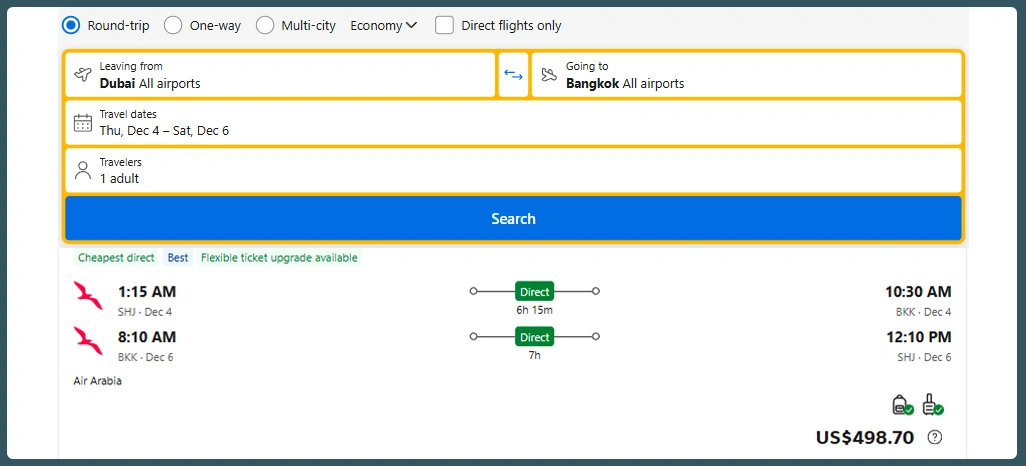
As pricing decisions grow more complex, analyzing diversified data sources becomes vital. The use of Web Scraping for Travel Data allows pricing analysts to gather details from multiple channels including booking engines, customer review platforms, and travel forums. This data empowers organizations to identify new trends, analyze rate disparities, and maintain consistency in pricing structures.
For instance, integrating structured data from numerous online sources helps companies evaluate which combinations of offers or packages attract maximum attention. By consolidating historical booking data with competitor information, organizations can identify the most effective pricing tiers for specific destinations. Industry reports indicate that businesses using integrated analytics achieve up to 50% more insight accuracy when forecasting demand cycles.
| Source Type | Data Usage | Business Impact |
|---|---|---|
| Online booking portals | Price benchmarking | Improved parity control |
| Customer review websites | Sentiment analysis | Higher brand credibility |
| Airline websites | Seasonal forecasting | Better rate timing |
| Travel aggregators | Cross-market comparison | 40% stronger market awareness |
Using cross-platform analytics helps businesses instantly detect pricing discrepancies, safeguarding both revenue margins and brand credibility. This Competitive Pricing for Travel Platforms approach enables a unified, data-driven perspective where each pricing adjustment aligns with wider consumer and competitor behaviors, ensuring more consistent and measurable strategies.
Optimizing Revenue Outcomes Through Smart Predictive Automation
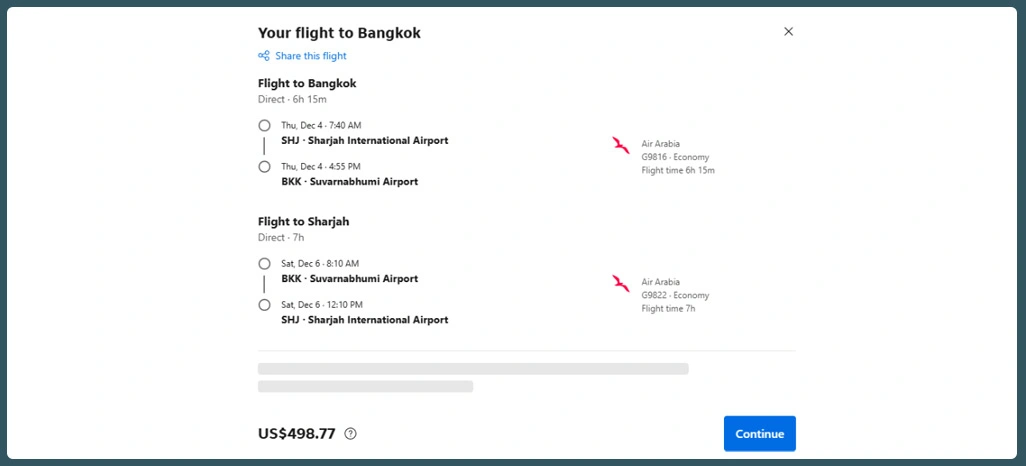
Automation has become a crucial enabler in modern pricing strategies. The introduction of Ai-Based Dynamic Pricing now empowers travel operators to automate pricing cycles using machine learning and advanced predictive analytics. AI algorithms assess customer behavior, competitor adjustments, and demand fluctuations to forecast the best possible prices at any moment.
This automated approach significantly reduces manual intervention, allowing analysts to focus on strategy refinement rather than constant data tracking. Research shows that travel enterprises leveraging artificial intelligence recorded a 30% rise in profitability and a 25% reduction in operational costs. AI tools also ensure error-free rate updates across multiple distribution platforms, maintaining consistency in dynamic environments.
| Automation Technique | Functionality | Operational Benefit |
|---|---|---|
| Predictive learning models | Forecast pricing trends | +24% efficiency |
| Automated rate sync | Maintain price parity | +28% accuracy |
| Demand-based algorithm | Analyze booking intent | +31% conversions |
| Market signal detection | Identify sudden shifts | +19% stability |
By merging intelligent automation with strategic analytics, businesses can make real-time decisions that align with both market conditions and profitability goals. AI-based predictive modeling ensures not only better margins but also a faster response to fluctuating traveler demand patterns.
Transforming Data Extraction into Scalable Intelligence Systems
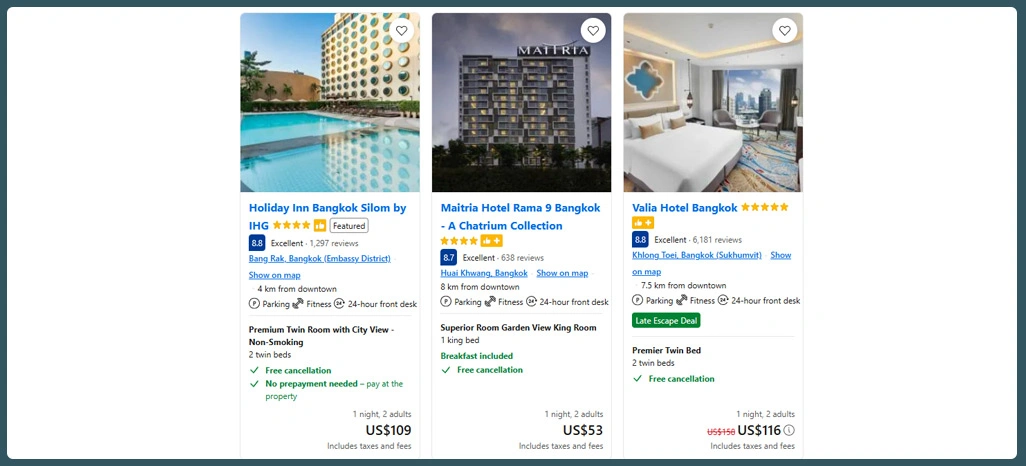
Scalability defines the strength of modern travel intelligence systems. The integration of Travel Data Scraping enables companies to gather structured data from global sources without human limitations. Automated extraction systems collect vast datasets from thousands of listings, ensuring consistency, speed, and reliability in decision-making.
Through scalable data pipelines, analysts gain access to daily updates about occupancy patterns, pricing structures, and competitor promotions. According to industry benchmarks, organizations employing large-scale data extraction tools experience a 40–55% boost in pricing consistency and insight quality. These frameworks also enable segmentation of customer behaviors, ensuring personalized offers that match demand levels.
| Data Category | Update Frequency | Efficiency Gain |
|---|---|---|
| Room and rate details | Hourly | 94% accuracy |
| Competitor comparisons | Continuous | 92% precision |
| Promotional tracking | Daily | 88% efficiency |
| Market movement reports | Weekly | 90% relevance |
With a structured, data-rich ecosystem, decision-makers can efficiently analyze both macro and micro trends. Continuous data access through Hotel Data Scraping enhances responsiveness and supports sustained growth across travel sectors, creating a dependable base for modern dynamic pricing systems.
Strengthening Business Integration with API-Driven Solutions
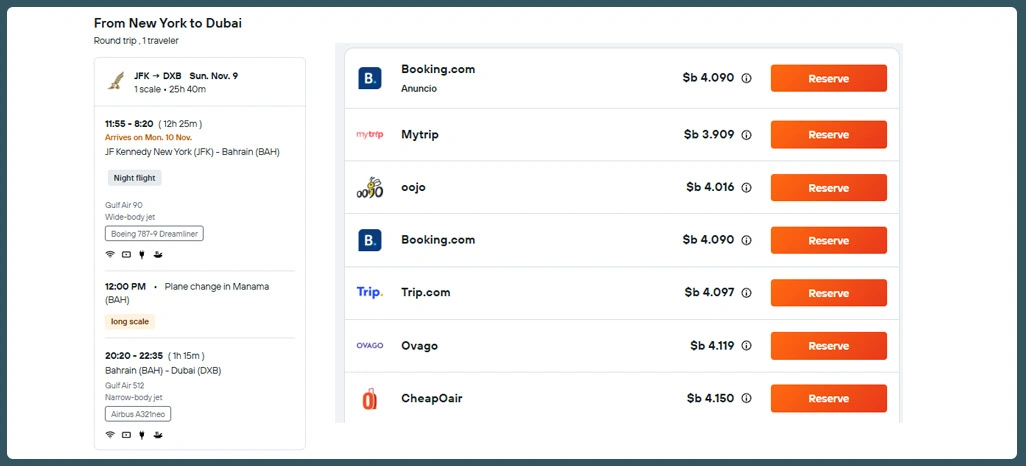
The interconnectedness of digital systems has redefined travel pricing operations. Implementing Travel Scraping API solutions allows businesses to automate synchronization between booking systems, analytics platforms, and external distribution channels seamlessly. This API framework supports constant data flow, minimizing manual intervention and ensuring up-to-date accuracy across networks.
An API-driven system provides centralized control over pricing logic while enabling simultaneous updates across multiple points of sale. Research from Phocuswright reveals that companies using API-based solutions achieve 40% faster rate updates and reduce pricing discrepancies by nearly 60%.
| API Function | Use Case | Benefit Outcome |
|---|---|---|
| Rate synchronization | Real-time updates | Higher data reliability |
| OTA integration | Direct system connection | 45% faster adjustments |
| Channel manager linking | Multi-platform alignment | Improved consistency |
| Data reporting API | Instant analytics | 35% better forecasting |
This seamless ecosystem enables uniform information flow across all departments and systems, fostering closer collaboration between technology and strategy teams. By aligning operational goals with real-time data intelligence and integrating Dynamic Pricing in Travel Industry, it enhances overall pricing precision and decision-making efficiency.
How Retail Scrape Can Help You?
Data accuracy and responsiveness are vital in today’s competitive travel landscape. With Hotel and Travel Data Scraping, we provide travel businesses with custom-built tools that collect structured data from thousands of online sources to drive smarter pricing strategies.
Our advanced platform helps travel companies automate data extraction and manage vast datasets effortlessly.
- Collect structured pricing and availability data.
- Track competitor rates and promotional campaigns.
- Identify market trends and seasonal variations.
- Automate cross-platform data updates.
- Visualize analytics through interactive dashboards.
- Enhance accuracy with real-time data verification.
By empowering your decision-making with actionable insights, we help optimize pricing and improve revenue streams efficiently. Ultimately, it supports better Competitive Pricing for Travel Platforms, ensuring sustainable business growth.
Conclusion
In an increasingly digital ecosystem, Hotel and Travel Data Scraping serves as the foundation for data-driven pricing strategies that maximize profitability. By integrating structured intelligence and analytics, businesses can continuously refine pricing to match market behavior and customer demand.
The impact of Hotel Rate Comparison Data extends beyond just competitive advantage—it creates value through informed, real-time decisions. Start transforming your pricing intelligence today with our advanced data solutions. Contact Retail Scrape now to empower your travel business with precision-driven data extraction and smarter pricing outcomes.
